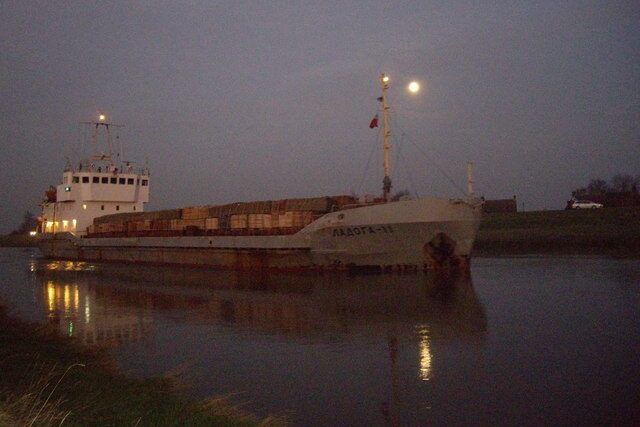
Cargo riverboats are left high and dry by droughts.
Ann Christina Sloek-Andersen warns that rising droughts are forcing shipping companies to abandon some of the world’s most important river cargo routes.
Maersk, a global shipping conglomerate, has a senior director named Ms. Sloek-Andersen.
“[Last summer] we had to switch a lot of cargo from river to rail in Europe,” she says, “in order to keep the big German industry clusters in Baden-Württemberg, Bavaria and Hessen connected to the ports of Rotterdam and Antwerp.”
On the vast Rhine River, which runs for almost 800 miles from Switzerland to the Netherlands before joining the North Sea, cargo riverboats typically transport more than 300 million tonnes of goods annually.
However, due to record-low water levels in the summer of 2013, some vessels could only carry 25% of their usual load to avoid running aground on the riverbed. Shipping was severely impacted as a result.
“There are lots of well-known German and Swiss blue-chip companies… that rely on inland waterways to get raw materials and products in and out,” says Ms Sloek-Andersen.
The items that Maersk’s riverboats carry include pharmaceuticals, fresh produce that is sensitive to temperature, raw materials like chemicals, and components for automobiles and machinery.
“We carry our customers’ cargo on barges wherever possible,” says Ms Sloek-Andersen, “because it means far less CO2 emissions compared to trucks.”
Maersk, on the other hand, claims that because of its existing partnerships with rail providers, they were able to “jump in with extra capacity” when the Rhine’s levels dropped last summer.
According to Ms. Sloek-Andersen, rail is preferred to the river because it emits approximately 20-30 g of CO2 per tonne-kilometer per year (gCO2e/tkm) less CO2 than trucks, which emit nearly 140 gCO2e/tkm.
She adds, however, that other businesses were forced to switch to road freight.
Furthermore, Europe was not the only region to experience dry conditions last year.
“You could walk across the mighty Mississippi River – that’s not something we were prepared for,” says Sarah Schiffling, a supply chain expert, and assistant professor at Hanken School of Economics, Helsinki, Finland.
Over 500 million tons of freight are transported annually by the Mississippi River, but record low water levels were estimated to have caused $20 billion (£16.7 billion) in economic damage last year.
“Droughts are not a new phenomenon,” says Prof Schiffling, “but [last year] we saw droughts in multiple areas across the world, all at the same time. It had a massive impact on inland shipping.”
Due to water levels that were more than 50% below average, parts of the Yangtze River in China were closed to ships. The Yangtze River’s surrounding provinces account for 45% of the country’s economic output.
In the meantime, Europe experienced its worst dry spell in at least 500 years in 2022, with drought conditions affecting two thirds of the continent.
It comes as research indicates that drought conditions will only get worse in the coming years.
——————————————————————————
At Natural World Fund, we are passionate about stopping the decline in our wildlife.
The declines in our wildlife is shocking and frightening. Without much more support, many of the animals we know and love will continue in their declines towards extinction.
When you help to restore a patch of degraded land through rewilding to forests, meadows, or wetlands, you have a massive impact on the biodiversity at a local level. You give animals a home and food that they otherwise would not have had, and it has a positive snowball effect for the food chain.
We are convinced that this is much better for the UK than growing lots of fast-growing coniferous trees, solely to remove carbon, that don’t actually help our animals to thrive.
This is why we stand for restoring nature in the UK through responsible rewilding. For us, it is the right thing to do. Let’s do what’s right for nature!
Support our work today at https://naturalworldfund.com/ and join in the solution!

